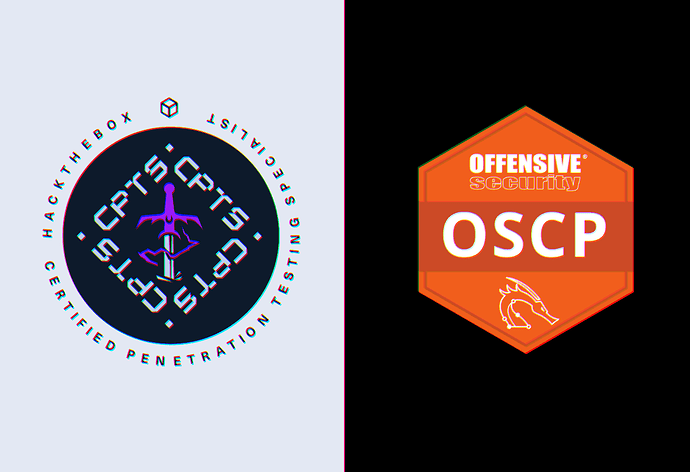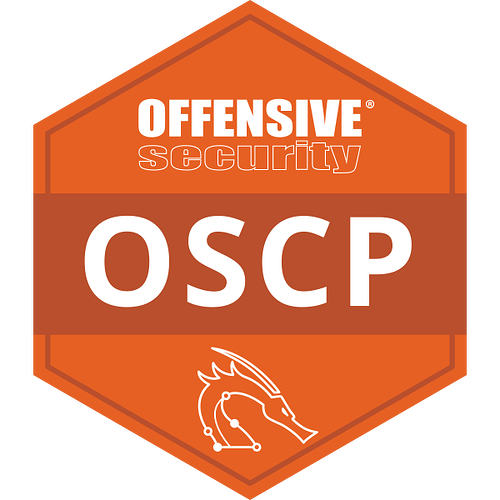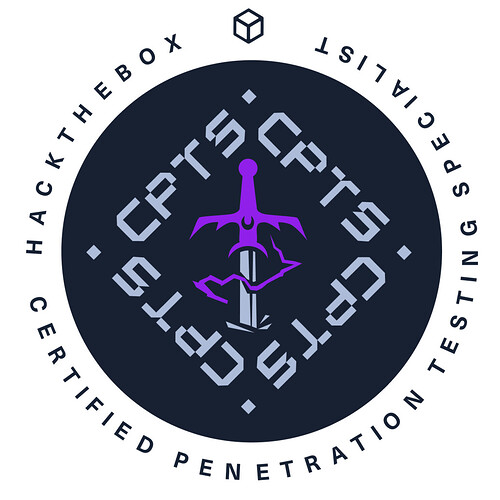When it comes to penetration testing and ethical hacking, having the right credentials can make all the difference in advancing your career. Two popular certifications in this field are the Offensive Security Certified Professional (OSCP) and the Hack The Box (HTB) Certified Penetration Testing Specialist (CPTS). But what sets these certifications apart, and which one should you choose? In this blog post, we will explore the pros and cons of each certification and help you decide which one is right for you.
What is OSCP?
The Offensive Security Certified Professional (OSCP) is a well-established certification program offered by Offensive Security, a leading provider of penetration testing training and certifications. The OSCP certification demonstrates that a candidate possesses the skills and knowledge required to perform professional-level penetration tests. To achieve the OSCP certification, candidates must complete the Penetration Testing with Kali Linux (PWK) course and pass the associated exam.
Pros of OSCP:
- Highly recognized and respected certification in the industry
- Comprehensive training program covering a wide range of topics, including network security, web application security, and password cracking
- Hands-on lab environment allows candidates to gain practical experience
- Exam is challenging, requiring candidates to demonstrate deep understanding and critical thinking skills
Cons of OSCP:
- Expensive, with the cost of the course and exam totaling $1,600
- Limited availability of practice labs, which can impact hands-on learning
- Steep learning curve due to the advanced nature of the course material
What is CPTS?
The Hack The Box (HTB) Certified Penetration Testing Specialist (CPTS) is a relatively new certification program designed to offer an affordable alternative to the OSCP. The CPTS certification demonstrates that a candidate possesses the skills and knowledge required to perform entry-level penetration tests. To achieve the CPTS certification, candidates must complete the Penetration Tester course and pass the associated exam.
Pros of CPTS:
- Affordable, with a monthly subscription model starting at $8/month
- Access to a vast library of virtual machines and environments for hands-on practice
- Course material is regularly updated to reflect the latest threats and vulnerabilities
- Community support and collaboration encouraged through the HTB forum
Cons of CPTS:
- Less recognized and established compared to OSCP
- Course material may lack depth compared to OSCP
- No formal training program; candidates must rely on self-study and online resources
Comparison of OSCP and CPTS
| Feature | OSCP | CPTS |
|---|---|---|
| Cost | $1,600 | $8/month |
| Duration | 3 months | Ongoing |
| Training Program | Yes | No |
| Lab Environment | Hands-on | Virtual machines and environments |
| Exam Difficulty | Challenging | Moderate |
| Recognition | Well-established and highly recognized | Relatively new and growing reputation |
Which Certificate Is Right for You?
Choosing between the OSCP and CPTS ultimately depends on your goals, budget, and learning style. If you are looking for a well-established and highly recognized certification that offers comprehensive training and a challenging exam, then the OSCP may be the better choice. However, if you prefer a more affordable option with flexible learning options and a focus on hands-on practice, then the CPTS could be the better fit.
If you are just starting out in penetration testing and ethical hacking, the CPTS may be a good place to start. Its lower cost and accessible virtual machine environment allow for hands-on practice without breaking the bank. Additionally, the CPTS course material is regularly updated, ensuring that candidates learn about the latest threats and vulnerabilities.
On the other hand, if you already possess some experience in penetration testing and want to take your skills to the next level, the OSCP may be the better choice. Its comprehensive training program covers a broad range of topics, and its challenging exam requires candidates to demonstrate deep understanding and critical thinking skills. While the cost is higher, the OSCP certification is well-established and highly recognized in the industry, opening doors to new opportunities and career advancement.


